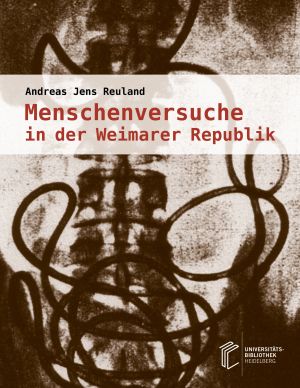Reuland, Andreas
Menschenversuche in der Weimarer Republik
Human experimentation without the consent of the subjects were common in the Weimar Republic. Unknowing tot he patients, experiments of all kinds were carried out on them in the context of therapeutic research or for the purpose of gaining general knowledge. Most of the patients experimented on were used to suffering, were submissive to and dependend on authority and were voiceless and destitute. As a price for their inpatient treatment, a free availability of their bodies was expected for scientific trials.
The physician and Social Democratic Reichstag representative Julius Moses pointed out these deficits towards the end of the Weimar Republic. Under the heading "100 rats and 20 children! Working-class children as guinea pigs," he published an accusation against the experiments of a clinician in 1928 in the periodical the Vorwärts, causing a public scandal. The protest against the inhumane conditions in clinical research during the Weimar Republic and Moses' "Struggle against the experimental rage" ultimately led to the development of research guidelines.
Unchanged reprint of the original 2004 edition.



